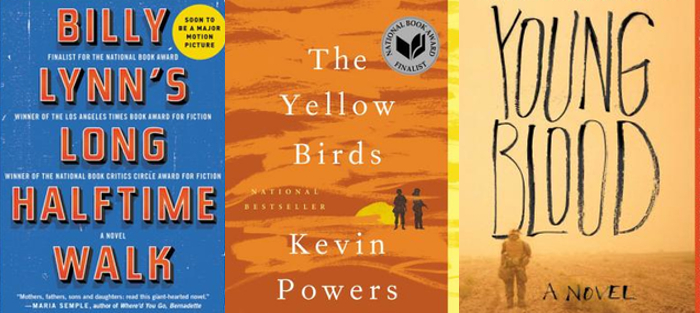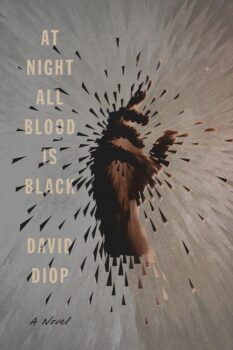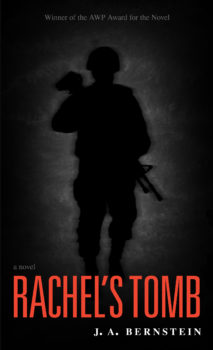In Billy Lynn’s Long Halftime Walk, by Ben Fountain (Ecco, 2012), the titular Billy grapples with the recent death of Sergeant Shroom, whom he deeply admired. In particular, Billy yearns for the knowledge, perspectives, and good advice of his former leader. However, the novel won’t allow Billy to simply grieve. There’s too much else going on.
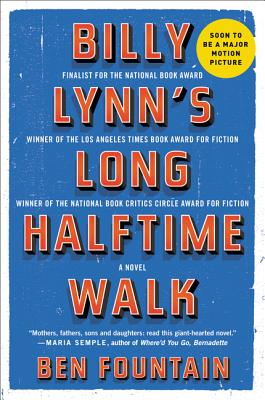 Fountain’s novel takes place at Texas Stadium on Thanksgiving Day: Billy and the rest of “Bravo squad” (or just “Bravo”; both are inaccurate nicknames perpetrated by the American news media) begin the final hours of their two-week “Victory Tour,” which will end after Bravo is featured at the halftime show of the Cowboys/Bears football game. Actually, Bravo is a sort of sideshow to the real halftime show: Destiny’s Child. They’re being used as a media stunt, but why should they complain? The food is good, and the cheerleaders are hot.
Fountain’s novel takes place at Texas Stadium on Thanksgiving Day: Billy and the rest of “Bravo squad” (or just “Bravo”; both are inaccurate nicknames perpetrated by the American news media) begin the final hours of their two-week “Victory Tour,” which will end after Bravo is featured at the halftime show of the Cowboys/Bears football game. Actually, Bravo is a sort of sideshow to the real halftime show: Destiny’s Child. They’re being used as a media stunt, but why should they complain? The food is good, and the cheerleaders are hot.
Bravo’s celebrity is a result of the dramatic battle at Al-Ansakar Canal; an embedded reporter caught the whole thing on video and the footage went viral. Many of the soldiers in the squad, including Billy, are now decorated. Also, there’s talk of a Hollywood movie—a tantalizing possibility that painfully sputters throughout the novel. In addition to contributing tantalizing notions of fame, the movie adds another layer of unreality to the rest of the unreality that is an NFL football game on Thanksgiving Day. If you were inclined to ruminate—and Billy is—you would have a lot to think about. If, like Billy, you also experienced yourself as less than wise and knowledgeable about the world, you would—and Billy does—want someone to talk to. In Billy’s case, Shroom is that someone. He was that mix of practical and philosophical that makes for an admirable leader. For example:
… Shroom advised [Billy] to place his feet one in front of the other instead of side by side, that way if an IED blew low through the Humvee Billy might lose only one foot instead of two. After a couple of weeks of aligning his feet just so, tucking his hands inside his body armor, always wearing eye pro and all the rest, he went to Shroom and asked how do you keep yourself from going crazy? Shroom nodded like this was an eminently reasonable question to ask, then told him of an Inuit shaman he’d read about somewhere, how this man could supposedly look at you and know to the day when you were going to die… Shroom’s point was made. If a bullet’s going to get you, it’s already been fired.
Shroom’s absence from the novel’s present action makes the rest of Billy’s problems more acute. Not only are a particular Cowboys cheerleader and the war and his family pressing on Billy’s mind, but the very experience of being featured at a nationally televised event is its own kind of exhausting, in large part because of the way Bravo squad is fawned over by the American public. Fountain usually captures such exchanges with a sprinkling of word-confetti over the printed page, opting where he can for a phonetic spelling; “terrRist,” “currj,” “nina leven,” and other words fall like a soft rain, indicating Billy’s distracted and slight comprehension. It’s not that Billy doesn’t care what they’re saying, it’s that he truly doesn’t understand it. Billy and the bloodthirsty American civilian might as well live on different planets. Fountain masterfully captures a Billy who is complex, tender, aching, frightened, resolved, and he does so with such agile and resourceful prose that we might suspect Billy a little too composed if he didn’t regularly get distracted by things as simple as girls, his hangover, and dumb jokes.
Overall, Billy’s interiority sets him apart—from the clueless civilians, the uber-wealthy execs, even from the football players, whose every need is met by an astounding reserve of gear and professionals. And as he basically gets along with everyone, he hardly even recognizes how alone he is. We might not recognize it either, except for the moments in which we realize that he has no one (besides said cheerleader, whom Fountain doesn’t paint as wisest of counsels) to whom he can bring his most pressing concerns. For example, in regards to his actions at the canal, Billy asks himself: “Is this what they mean by courage? Simply doing all the things you were trained to do, albeit everything at once and very fast?”
We have the sense that there are answers, or at least wise perspectives, to Billy’s questions. Billy has this sense, too, and though he has some real and helpful conversations, by and large his interactions are characterized by the kind of heartbreaking near-miss experienced by a person in need whose needs can’t or won’t be met by those around him. Billy is not alone, but he is lonely in a way that matters, without the counsel he needs to make sense of his surroundings.
Matt Gallagher’s Youngblood (Atria, 2016) also presents a main character longing for the counsel of an absent leader. But in stark contrast to a nationally televised sporting event, Youngblood opens on a deliberately tepid note: first-person narrator Lieutenant Porter and his platoon have been assigned, once again, to “Electricity recon,” which is “army language for walking around a neighborhood asking people how many hours a day they had power.” But the novel’s pace quickens with the arrival of a new staff sergeant, Chambers, battle-hardened and immediately respected by the other soldiers, who begins challenging Porter’s authority, undermining him in objectively small but threatening ways. This leads Porter to consult his older brother—“Captain William Porter, Commanding, West Point Graduate of 2002, [who] had pulled two of his soldiers from a burning Humvee in the Battle of Baqubah in 2007, earning him a Silver Star”—about what he should do. Will advises his brother to try to have Chambers removed. But higher-up makes Chambers the new platoon sergeant instead—which is to say, the novel sticks Porter with Chambers for good.
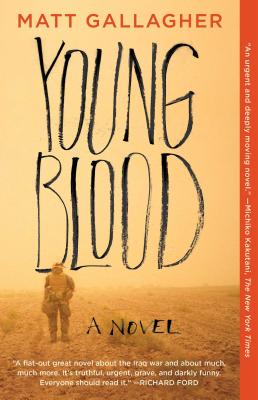 Around the same time as Chambers’ arrival, Porter is drawn into the mystery of a man known to locals as “the Shaba.” Porter’s interpreter Snoop, translating from the words of a mukhtar, says that Shaba “could change faces when he wanted to? He say it’s a special American army trick only the greatest soldiers can do. I don’t know, LT Jack. Crazy Arab talk.” The only thing Porter knows for sure about Shaba is that he could navigate both the Arab and the American worlds with ease—and ironically, it’s Porter’s lack of confidence in both of these worlds that not only hampers his investigation into the Shaba, but also hampers his effectiveness as a leader in the Army.
Around the same time as Chambers’ arrival, Porter is drawn into the mystery of a man known to locals as “the Shaba.” Porter’s interpreter Snoop, translating from the words of a mukhtar, says that Shaba “could change faces when he wanted to? He say it’s a special American army trick only the greatest soldiers can do. I don’t know, LT Jack. Crazy Arab talk.” The only thing Porter knows for sure about Shaba is that he could navigate both the Arab and the American worlds with ease—and ironically, it’s Porter’s lack of confidence in both of these worlds that not only hampers his investigation into the Shaba, but also hampers his effectiveness as a leader in the Army.
Meanwhile, Chambers’ influence on Porter’s men grows. Then Porter identifies the mysterious Shaba as Elijah Rios, who is dead, and whom Chambers knew and touts as “…‘bona fide, a real warrior. I owe everything to him. He saved my life.’ ” From here on, Porter’s war experience turns into a complex and dangerous mystery. Is the Shaba/Rios a bona fide warrior, a man in line with Chambers’ dark intentions, or is he a bridge-builder, worthy of the respect of the locals? The answer is unclear. Porter knows Chambers can’t be trusted, but to what extent? Time and again, a cultural, linguistic, bureaucratic, or interpersonal barrier stands between Porter and the answers he wants, which themselves stand in for Porter’s larger questions about the war—what he and his men are doing in Iraq, why it matters.
Like Billy Lynn, Porter is in need of advice from someone he trusts. His older brother Will might be more useful if he weren’t also so wrapped up in his dating life. And Rios himself would obviously be able to clear up a lot of Porter’s questions—but Rios is dead.
Porter does eventually find his way through the mystery of the Shaba—sort of. And he gets to the bottom of Chambers—sort of. But what he learns satisfies basic curiosity without feeling like much of a prize or a conclusion, and the novel ends on an ambiguously tragic note. Throughout the story, Lieutenant Porter is more or less alone as he pieces together what he can. After gaining yet another piece of information from a different mukhtar, Porter tells us he’s “certain I’d just found another piece to the puzzle that was Iraq, but bemused as to where to place it.
Like the narrator in Billy Lynn’s Half Halftime Walk, Lieutenant Porter shares a preoccupation with mysteries both immediate and abstract. But where Billy wonders how to get laid and how the “millions” fly around the world, Porter wonders more specifically about the war, asking himself at one point: “Our grandfathers had pushed back the onslaught of fascism. Just what the fuck were we doing?”
That question, in its focus on communal action, indicates the possibility of a communal answer. Youngblood argues that the truth about the war in Iraq—whatever that is—cannot be found alone. It also argues that the possibility of truth lies in not only particular people but in communal understanding. But how can a community uncover a truth when the only men (it seems) who can offer it are distracted, damaged, or dead?
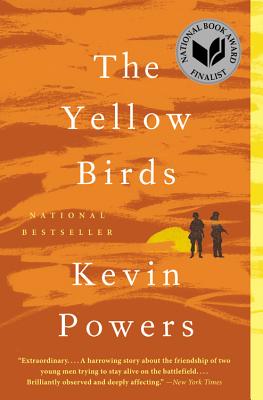 Themes of confusion persist in contemporary wartime fiction even when the missing individual is not a designated leader. In The Yellow Birds, by Kevin Powers (Back Bay Books, 2012), the missing man is Private Murphy, and the narrator, his friend and would-be protector Private Bartle, describes both the weeks leading up to Murphy’s death and what follows after Bartle comes home from the war.
Themes of confusion persist in contemporary wartime fiction even when the missing individual is not a designated leader. In The Yellow Birds, by Kevin Powers (Back Bay Books, 2012), the missing man is Private Murphy, and the narrator, his friend and would-be protector Private Bartle, describes both the weeks leading up to Murphy’s death and what follows after Bartle comes home from the war.
Bartle is supposed to be protecting Murphy based on a promise he made to Murphy’s mother soon before they shipped out. She asked him to take care of her son, to return him safely to her; with offhanded reluctance, he agrees. A friendship between the two men unfolds, perhaps because of the promise, perhaps in spite of it. Murphy is young, hopeful, and boyish, traits that in the novel’s logic make him susceptible to a strangely determined kind of hopelessness. In a revealing moment, soon before Murphy purposefully wanders off under strange circumstances, Bartle tells him, “We’ve got each other.” Murphy replies: “I don’t want to be tight with anyone because of this. Being here can’t be the reason we’re tight. I won’t let it be.” Private Bartle then tells us this:
I knew what he was trying to say and it frightened me. He wouldn’t be bound by this place to anything or anyone, even me. And I was afraid because I wondered what would be required for him to keep that promise to himself.
Murphy, it seems, is particularly adept at nothing except having his own thoughts, and even then his thoughts don’t strike us as particularly insightful or high-minded—just very honest. But this honesty leads him to his own demise, a gruesome conclusion that Bartle holds himself responsible for, though exactly what he did or did not do doesn’t receive much attention; rather, he “was guilty of something, that much is certain.” In The Yellow Birds, everything is unsettled. “The war tried to kill us in the spring,” the novel begins. It continues later in its opening sequence with:
The war would take what it could get. It was patient. It didn’t care about objectives, or boundaries, whether you were loved my many or not at all. While I slept that summer, the war came to me in my dreams and showed me its sole purpose: to go on, only to go on. And I knew the war would have its way.
The Yellow Birds is a far darker tale than Billy Lynn’s Long Halftime Walk or Youngblood, not only because it is more graphic, and its narrator more depressed, than in the other two novels, but also, I think, because Bartle doesn’t miss Murphy in the way that Billy misses Shroom, longing for his guidance, for the things that might have been said. And neither is Bartle preoccupied with Murphy in the way that Porter is preoccupied with Rios, who holds crucial pieces to an intricate puzzle. Murphy may represent an answer to a puzzle, but the puzzle is Bartle himself, and its solution is an accounting of guilt. Guilt was there in the beginning, assigned in a moment that’s hard to identify. As Bartle tells us, of the night he and others went looking for Murphy, “We had, in a strange way, surrendered. But to what, we did not know.”
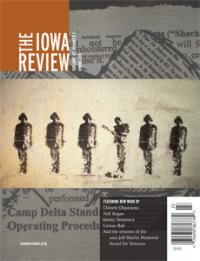 Finally—more briefly, but no less importantly—I want to consider Cole Becher’s short story “Charybdis,” which first appeared in the Spring 2013 issue of The Iowa Review, and was reprinted in The Best American Non-Required Reading 2014. In the story, an unnamed narrator and his company have just returned from Iraq, where they’d “spent eight months walking up and down berms and around shit-filled yards in Iraq swinging AN/PSS-12 mine detectors.” Different men handle the new calm at home in different ways, but one of them, Conrad, can’t settle down. He buys a cheap metal detector at Wal-Mart and begins patrolling neighborhoods. He goes missing for longer and longer periods of time (the combinations of what he reveals on these self-assigned patrols, and how both he and the community respond to what he finds, are some of the story’s finest moments), until his company turns out in force to hunt for him. An unsuccessful “ploy to lure him out” changes when the men “stopped half-assing and made the ruse real.” What follows is a darkly funny staging of the Iraq war in a well-to-do area, which results in a fake volunteer-deployment list, which in turn gets them all sent back to Iraq. At the story’s conclusion the narrator, in explaining why they could never find Conrad, says: “You have to understand: he’s one of the best. He didn’t want to be brought back, even by us. And I can’t say I blame him.”
Finally—more briefly, but no less importantly—I want to consider Cole Becher’s short story “Charybdis,” which first appeared in the Spring 2013 issue of The Iowa Review, and was reprinted in The Best American Non-Required Reading 2014. In the story, an unnamed narrator and his company have just returned from Iraq, where they’d “spent eight months walking up and down berms and around shit-filled yards in Iraq swinging AN/PSS-12 mine detectors.” Different men handle the new calm at home in different ways, but one of them, Conrad, can’t settle down. He buys a cheap metal detector at Wal-Mart and begins patrolling neighborhoods. He goes missing for longer and longer periods of time (the combinations of what he reveals on these self-assigned patrols, and how both he and the community respond to what he finds, are some of the story’s finest moments), until his company turns out in force to hunt for him. An unsuccessful “ploy to lure him out” changes when the men “stopped half-assing and made the ruse real.” What follows is a darkly funny staging of the Iraq war in a well-to-do area, which results in a fake volunteer-deployment list, which in turn gets them all sent back to Iraq. At the story’s conclusion the narrator, in explaining why they could never find Conrad, says: “You have to understand: he’s one of the best. He didn’t want to be brought back, even by us. And I can’t say I blame him.”
As with Billy Lynn’s Long Halftime Walk, Youngblood, and The Yellow Birds, the missing man in “Charybdis” holds some kind of answer—in Conrad’s case, a very concrete one: an account of where he is, how he evaded their best tactics. But as the story’s gestures become incrementally more funny and more fanciful, its conclusion becomes more pointed. The real question, the important question, is not the question Conrad can answer but the one he provides. It’s the question the rest of the men can only answer for themselves: how the hell did we end up here?
Now that’s a question with an answer. But who will be willing to answer it? All of these fictions show how the truth, perceived in another, seems like a solid and useful tool. The truth we already have, on the other hand, may not serve so obvious a purpose. We may even wonder what good it is at all.

